Curriculum
This program provides students with the necessary technical skills to successfully seek gainful employment in both biotechnology/pharmaceutical firms and academic laboratories.
Program of Study
The Master of Science in Biotechnology (BIOT) program consists of complementary aspects:
1:
A set of required courses designed to provide the students with the theoretical underpinnings of modern biochemistry and molecular biology that will provide students with a strong foundation for the hands-on aspects of the practica. Please visit the Drexel University Catalog for more information.
2:
A set of hands-on practica in which the students will be exposed to and immersed in the application of four different state-of-the-art technologies used in the biotechnology and biomedical industries. Each practicum is undertaken in the laboratory of a faculty member with the necessary expertise and who actively uses the methods that are the focus of the practicum in their research. The student will be first exposed to the techniques of the practicum using a well-established set of experiments, in which the results are already known. Following this introduction, the student will then progress to a research project associated with ongoing research in the mentor's laboratory. This format allows the student to become extremely familiar with the technique while actively participating in cutting edge research. Each practicum theme is typically taught in more than one research laboratory so that the student can actively contribute to an area of research that is of interest to them.
3:
There is also the opportunity to arrange an internship for the summer practicum (III) in one of the local pharmaceutical or biotechnology companies in the region.
Practicum Themes
Students will choose four of the following topics for their practica and will prepare a scholarly paper that reviews a topic related to the techniques associated with one of the practica.
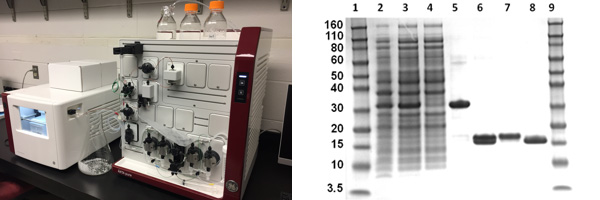
This practicum covers protein expression, overproduction and purification from bacterial strains. As such this practicum will cover transformation of specialized bacterial protein expresser strains, sonication/clarification, affinity chromatography, and other various chromatography's dependent on the particular laboratory chosen (i.e., ion exchange, and size exclusion) and the level of purity of the sample required. It is recommended that you perform this practicum before taking either the crystallography or SPR practicums.
Preceptors
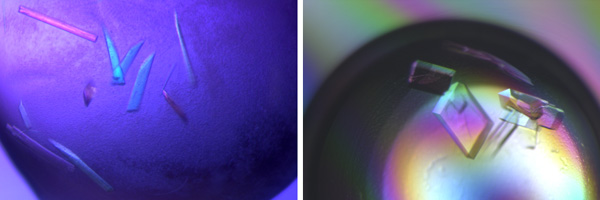
This practicum covers the sample preparation (i.e., protein purification, etc.) and crystallization of biological protein samples. This practicum does not cover structural determination from x-ray data.
Preceptor
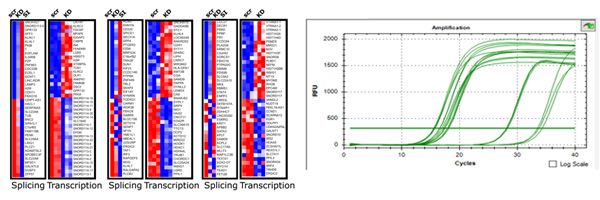
This practicum covers methodologies such as eukaryotic cell culture techniques, si/shRNA gene silencing, western blot analysis and cellular transfection. It is recommended that you take this practicum before the imaging/microscopy practicum.
Preceptors
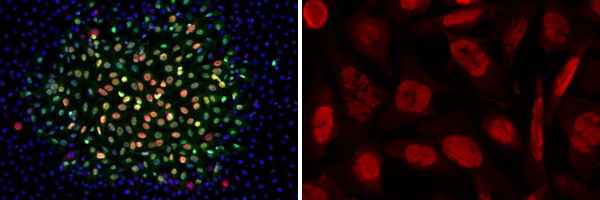
This practicum covers methods including eukaryotic cell culture, microscopic sample slide preparation, and microscope use and image data analysis.
Preceptors
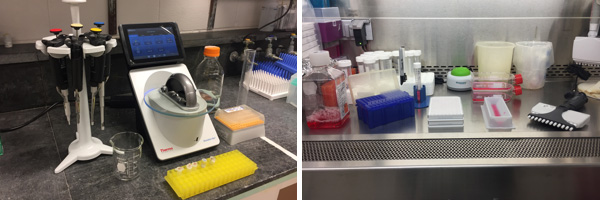
This practicum will cover the basics of working in a laboratory, including commonly used techniques (pHing and buffer prep, bacterial transformation, plasmid propagation/purification, agarose gel electrophoresis, DNA/protein spectroscopy, and PCR/PCR product purification), maintaining a laboratory notebook, and correct lab etiquette. We recommend taking this practicum before any others if you do not have very much hands-on laboratory experience.
Preceptors
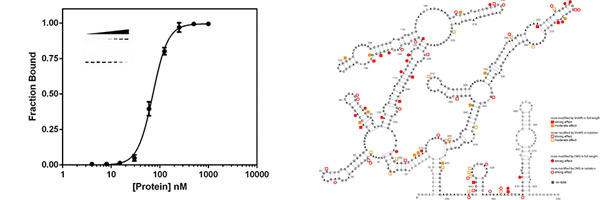
This practicum covers several biochemical techniques for characterization and functional analysis of RNA molecules. The techniques include but are not limited to: T7 transcription, RNA purification, total-RNA extraction, reverse transcription, nucleic acid labeling and EMSA.
Preceptor
Program-Level Outcomes
Graduates of the Master of Science in Biotechnology program will achieve six program-level outcomes that describe the skills, competencies and knowledge gained through completion of the program curriculum.
- Have learned key molecular biology and biochemistry techniques
- Have developed applied research skills in biotechnology
- Be able to conduct independent research on real world problems
- Have obtained broad fundamental knowledge through courses, laboratory and the scientific literature
- Be able to understand and abide by the ethical and professional standards of their chosen field
- Have developed oral and written communication skills, and data record keeping
- Be competitive for internship opportunities at biotechnology companies
- Have developed the skills to be competitive for jobs in both industry and academia
Program Policies
Download the program handbook [PDF] to learn about policies pertaining to the Master of Science in Biotechnology program.
Curriculum Timeline
Please visit the Drexel University Catalog for more information.